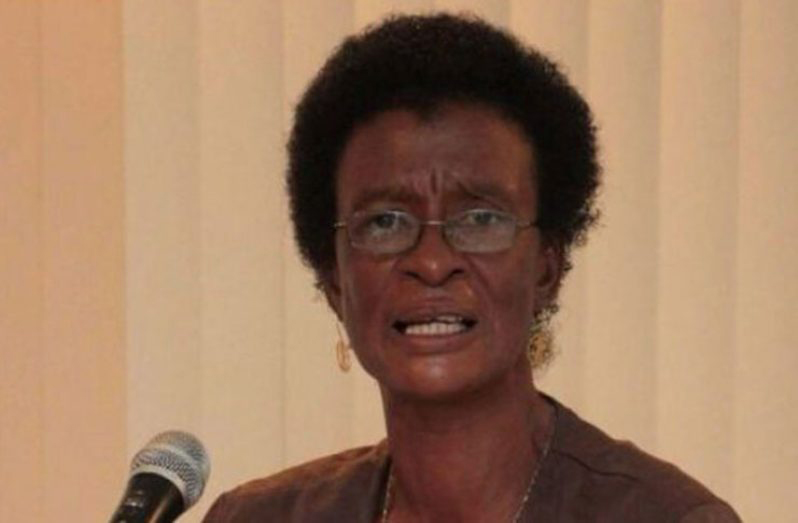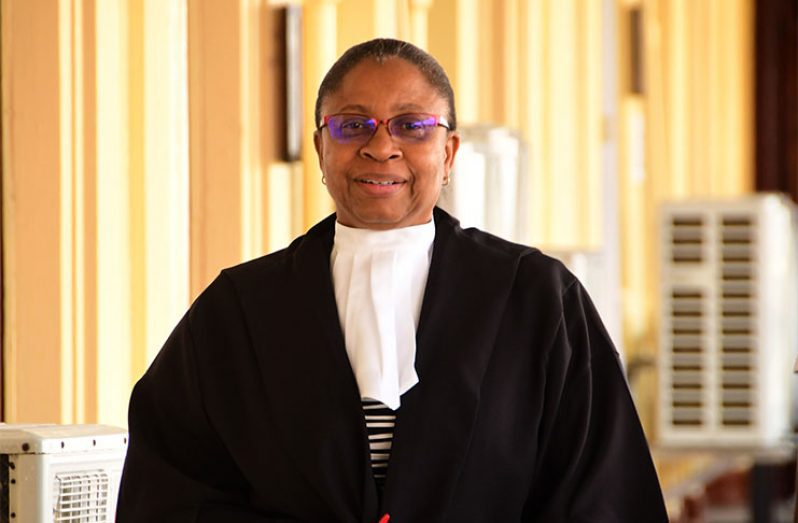says the most ‘unmeritorious’ application was filed to challenge voters’ list
By Clestine Juan
CHIEF Justice (CJ) Roxane George on Tuesday dismissed the challenge filed by A Partnership for National Unity (APNU) regarding the process used to compile the List of Electors (or voters’ list) for the upcoming Local Government Elections (LGEs).
In her ruling, the Chief Justice determined that Carol Smith-Joseph’s application lacked merit as she failed to provide evidence to support her claims or the declarations she was seeking from the court.
The Chief Justice criticised Smith-Joseph’s affidavit and supplementary submissions for being of poor quality and lacking evidence of their source or how they supported her claim that the list was flawed.
According to the CJ, the documents were “extremely poor and poorly reproduced.
“The applicant must have known that what she was producing to the court is unreliable evidence… There is no credible evidence before this court of ineligible persons being listed in the RoV [Register of Voters],” she said.
The Chief Justice found that GECOM acted lawfully in compiling the List of Voters and that it has a constitutional duty to ensure that the registration of electors is conducted in accordance with the law.
“In my view that has turned out to be the most unmeritorious application that has taken up a lot of judicial time… The only positive thing that can be gained from this case is that it allows the court to urge that Parliament must endeavour to harmonize elections laws and to resist piecemeal amendments that hang over many pieces of legislation,” she said while dismissing the application.
Smith-Joseph has been ordered to pay GECOM costs amounting to $250,000 before, or on June 30, 2023.
She was seeking a series of declarations from the court, including that GECOM acted unlawfully in compiling the List of Voters and that it had a constitutional duty to ensure that the registration of electors is conducted in accordance with the law.
Joseph had asked the court to set aside GECOM’s order to extract a List of Electors for Local Government Elections, and for an order to be granted compelling the Elections Commission to comply with the relevant sections of the Local Authorities (Elections) Act Cap 28:03.
The legal challenge outlines several grounds, including that the process used to prepare the Register of Voters deprived voters of the opportunity to object to persons on the list, and that the process was not in accordance with the Local Authorities (Elections) Act.

“The process employed by the commission to prepare a Register of Voters for use at the next Local Government Elections has not been in accordance with the Local Authorities (Elections) Act,” she had argued
The applicant had asked the court to grant orders setting aside GECOM’s order to extract a List of Electors “…on the ground and for the reason that the said Order No. 55 of 2022, is ultra vires and unlawful.”
The court found that all of her contentions were meritless.
Minister of Local Government and Regional Development, Nigel Dharamlall wrote the Chairperson of GECOM, Justice (Ret’d) Claudette Singh appointing June 12, 2023, as the date for conduct of the elections.
GECOM has already approved the work plan, which paved the way for the secretariat to proceed with the implementation of the relevant statutory and administrative activities for the elections in the 80 Local Authority Areas (LAAs) countrywide.
The LGEs were legally due in 2021 and the funds were budgeted to facilitate this. However, several issues facing GECOM at the time prevented the holding of the elections, including the non-appointment of a Chief Election Officer (CEO).
APNU is contesting in only 45 per cent of the 610 constituencies and 24 Local Authority Areas (LAAs), while the PPP/C is contesting in all 610 constituencies in the 80 LAAs.



.jpg)










